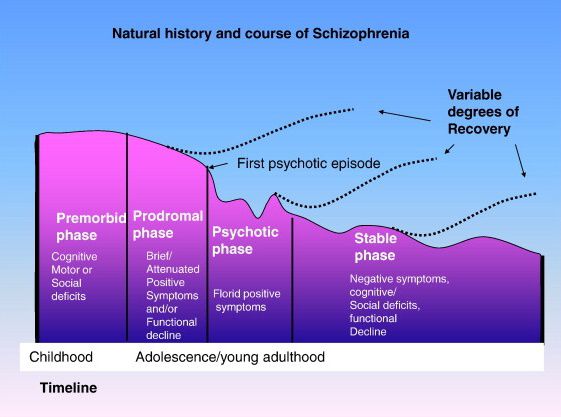The idea that cannabis causes schizophrenia comes from a fairly understandable conclusion. Cannabis contains THC, which (among other compounds) has a psychoactive effect that can make people who take cannabis feel ‘high’. In large doses, there is also evidence to suggest that cannabis can cause hallucinations in some people.
For many people, the fact that cannabis can be psychoactive leads them to believe it must also cause psychiatric illnesses like schizophrenia. This was also a talking point of powerful people in the war on drugs, including Ronald Reagan and Richard Nixon.
Interestingly, there is plenty of literature confirming that many young people who use cannabis are later diagnosed with schizophrenia (which is usually diagnosed in a person’s 20s). This is also true of tobacco.
However, this literature does NOT prove that schizophrenia is caused by cannabis use. Instead, much of it points to something called ‘reverse causality’.
Reefers and Reverse Causality
Reverse causality is the idea that two things are related, but not in the way we think they are. In the case of cannabis, this would mean that cannabis does not cause schizophrenia, but people with schizophrenia are drawn to cannabis.
Schizophrenia is an illness that typically has three stages: prodromal, active, and residual. During the prodromal stage, people experience early symptoms like anxiety, a lack of motivation, irritability, and sleep disturbances. These symptoms can last for years before any psychotic episode occurs.
For people in the prodromal stage, cannabis may provide relief from these symptoms, driving a person suffering from the early symptoms of schizophrenia to use cannabis to self medicate. It is also possible people diagnosed with schizophrenia are genetically predisposed to cannabis use.
In a 2016 study on cannabis and schizophrenia, researchers found that a person who is likely to smoke cannabis has a 24% higher risk of experiencing schizophrenia, compared to someone who is unlikely to smoke cannabis. Rejecting the idea that schizophrenia causes cannabis use, researchers wrote this in their conclusions:
We find stronger evidence that schizophrenia risk predicts cannabis initiation.
These results are also supported by 2018 study and a 2014 study, both of which are peer-reviewed.
What does new research say?
A recent study published in JAMA Physiatry (the journal of the American Medical Association) reviewed all of the studies conducted on the association between cannabis and schizophrenia. The study was looking to prove or disprove three hypotheses:
- Cannabis causes schizophrenia
- Cannabis use is associated with schizophrenia, but genetic and familial factors are also at fault for schizophrenia
- Cannabis does not cause schizophrenia
Using the data obtained from other studies, researchers were able to completely disprove first and last hypotheses.
Researchers were also able to prove hypothesis two, concluding that there is reasonable evidence to support the idea that schizophrenia causes or increases cannabis use (ie. reverse causation). They note that while cannabis use may impact the symptoms of schizophrenia, more research is needed to properly understand how.
In one section of the study, the writers Nathan Gillespie (PhD) and Kenneth Kendler (MD) also include this comment:
Claims made about the changes in risk for schizophrenia stemming from changing levels of cannabis use are very likely to be exaggerated and potentially substantially so.
Conclusion
Cannabis may have an impact on schizophrenia, but it’s certainly not causing reefer madness. While we wait for more evidence on the topic, we need to stop with the anti-cannabis fear-mongering (as seen in New Zealand’s cannabis referendum) and focus on science.









